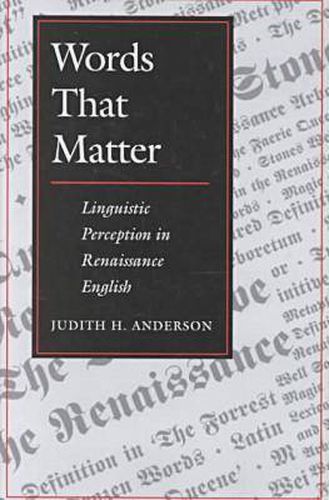Readings Newsletter
Become a Readings Member to make your shopping experience even easier.
Sign in or sign up for free!
You’re not far away from qualifying for FREE standard shipping within Australia
You’ve qualified for FREE standard shipping within Australia
The cart is loading…






The grammar and rhetoric of Tudor and Stuart England prioritized words and word-like figures rather than sentences, a prioritizing that had significant consequences for linguistic representation. Among these was a heightened awareness of the equivocal thingness of language, whether verbal units like proverbs, inscriptions, and biblical quotations or individuated words such as lexical entries, Latin tags, and verbal icons. The author shows how the new or newly important technologies of printing and lexicography contributed substantially to this awareness. As symptom and cause these technologies participated in a growing cultural emphasis on externalized expression and on the material world. Both perceptually and materially they engaged the contemporary epistemological shift from essence to meaning and from referential object to word.
$9.00 standard shipping within Australia
FREE standard shipping within Australia for orders over $100.00
Express & International shipping calculated at checkout
The grammar and rhetoric of Tudor and Stuart England prioritized words and word-like figures rather than sentences, a prioritizing that had significant consequences for linguistic representation. Among these was a heightened awareness of the equivocal thingness of language, whether verbal units like proverbs, inscriptions, and biblical quotations or individuated words such as lexical entries, Latin tags, and verbal icons. The author shows how the new or newly important technologies of printing and lexicography contributed substantially to this awareness. As symptom and cause these technologies participated in a growing cultural emphasis on externalized expression and on the material world. Both perceptually and materially they engaged the contemporary epistemological shift from essence to meaning and from referential object to word.